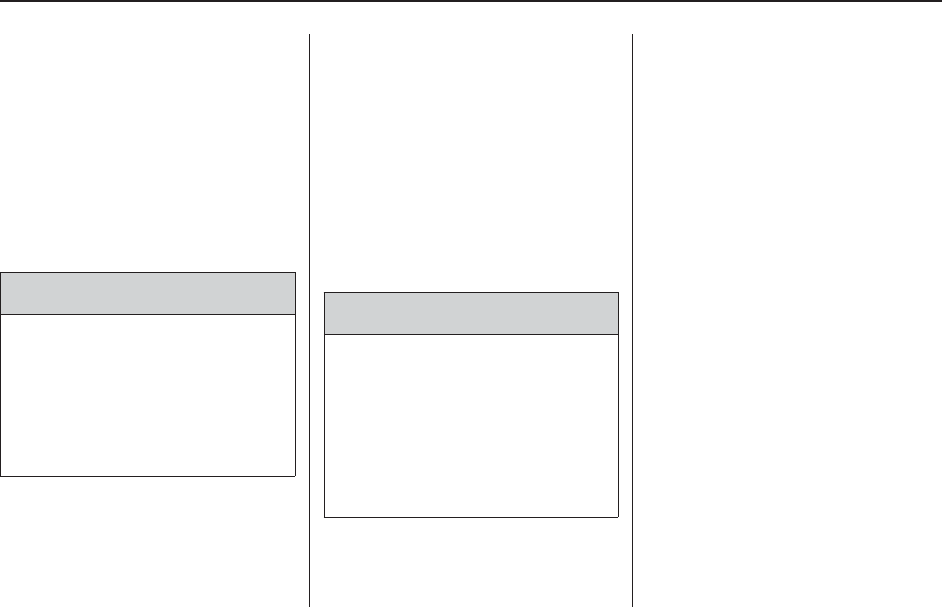
Driving Uphill
Once you decide it is safe to drive
up the hill:
• Use a low gear and get a firm
grip on the steering wheel.
• Get a smooth start up the hill
and try to maintain speed.
Not using more power than
needed can avoid spinning the
wheels or sliding.
{ CAUTION
Turning or driving across steep
hills can be dangerous. You could
lose traction, slide sideways, and
possibly roll over. You could be
seriously injured or killed. When
driving up hills, always try to go
straight up.
• Try to drive straight up the hill if
at all possible. If the path twists
and turns, you might want to
find another route.
• Ease up on the speed as you
approach the top of the hill.
• Attach a flag to the vehicle to be
more visible to approaching
traffic on trails or hills.
• Sound the horn as you approach
the top of the hill to let opposing
traffic know you are there.
• Use headlamps even during the
day to make the vehicle more
visible to oncoming traffic.
{ CAUTION
Driving to the top (crest) of a
hill at full speed can cause an
accident. There could be a
drop-off, embankment, cliff, or
even another vehicle. You could
be seriously injured or killed.
As you near the top of a hill,
slow down and stay alert.
If the vehicle stalls, or is about to
stall, and you cannot make it up
the hill:
• Push the brake pedal to stop the
vehicle and keep it from rolling
backwards and apply the parking
brake.
• If the engine is still running, shift
the transmission to R (Reverse),
release the parking brake,
and slowly back down the hill in
R (Reverse).
• If the engine has stopped running,
you need to restart it. With the
brake pedal pressed and the
parking brake still applied, shift
the transmission to P (Park) and
restart the engine. Then, shift to
R (Reverse), release the parking
brake, and slowly back down the
hill as straight as possible in
R (Reverse).
4-18 Driving Your Vehicle


















